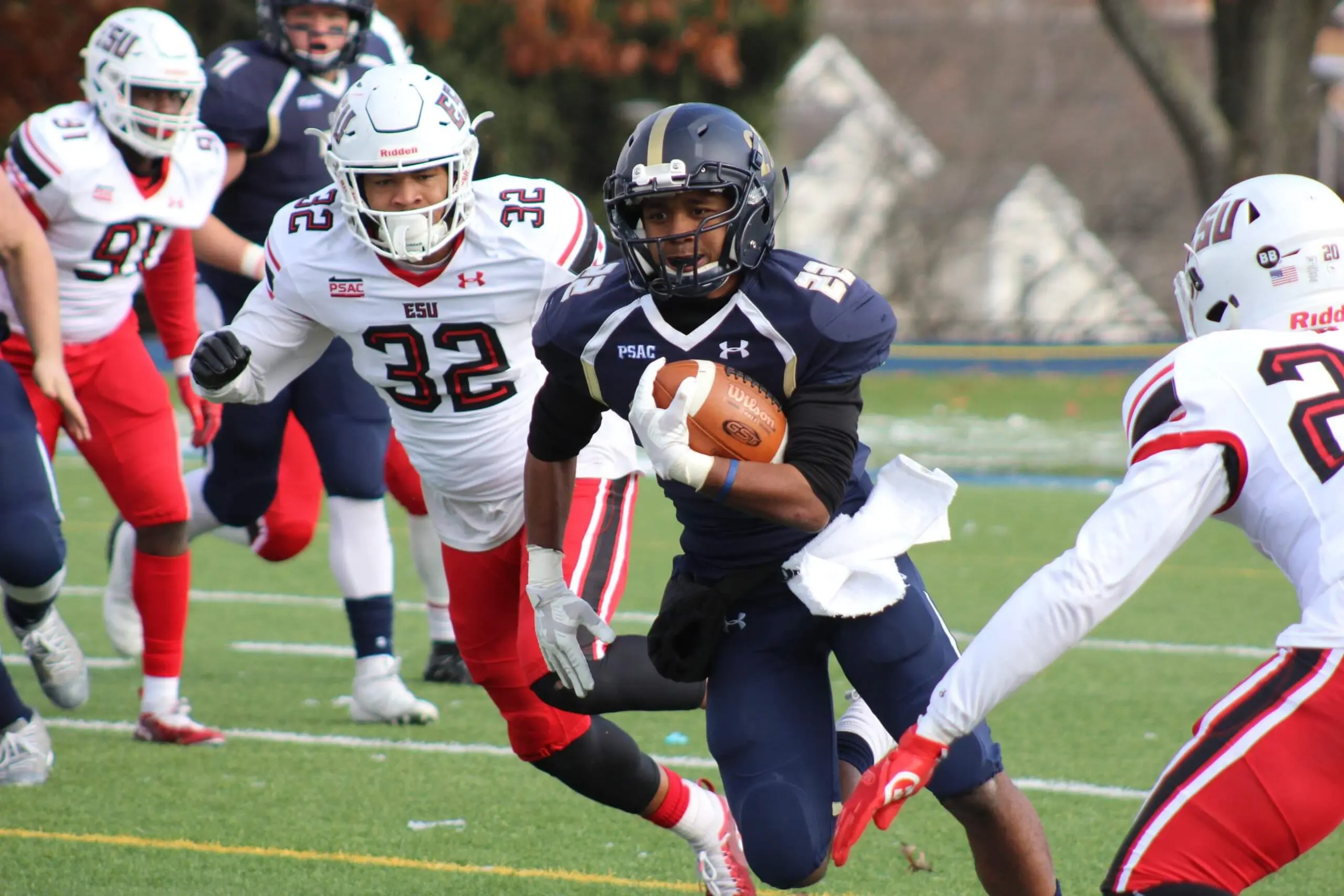Phillip Wenturine, MFA, University Counselor and AP Coordinator at GEMS Dubai American Academy.
When you hear the term “Best Fit”, naturally many things may come to mind. Perhaps your brain immediately jumps to clothing, as in, “My child’s shoes are a bit too small and aren’t quite the best fit” or even “I need a more formal look for my friend’s wedding, so these colors/this outfit are too casual and not the best fit for this particular event.”Maybe you think of when you applied for jobs in the past, and perhaps a certain location or role was in the realm of your interests, but overall, it was not your favorite choice; thus you turned it down because it wasn’t the “best fit” for your needs at that time.
All of these examples are great to think of, because it is a very similar concept when we, as counselors, are describing “best fit” to our students when supporting them with their university applications. It is vital that students take this best-fit approach when considering universities to apply to and attend, as just the same as a too-small pair of shoes is not ideal, it won’t be comfortable attending university for very long if this element of the application process is neglected.
So, how exactly do we support students as they seek out their best-fit universities? How do we best encourage their understanding of the best fit, and what specific factors play a role in determining this?
There are many factors to take into consideration when determining the best fit for students during their university application process. Before even beginning the process, students must research and create a shortlist of universities they wish to apply to. This process is highly individualized and specific to each student based on their current performance and ability as a high school student and their desires for their university experience to come.

Photo by Yan Krukov
Reach, Target, and Safety – A Summary
Most students and counselors alike have heard the terms “reach”, “target”, and “safety” used in the university application context. Reach, in short, refers to universities that have either high academic marks needed for admissions and/or a very limited and selective number of seats available. Target, simply, equates to a university that offers acceptances in the range of a student’s current academic performance, and they have a wider percentage of admission in comparison to the average number of applicants annually. Lastly, safety references schools that have a high percentage of admission and students have a very strong academic profile with little need to worry over their chances of getting in. It’s important students fully understand their GPA, their IB predictions, their A-Levels, etc., (all of their academic markings), and what each university of consideration requires to successfully craft a well-balanced and best-fit university list.
But how does “best fit” fit in with “reach”, “target”, and “safety”?
There is a wide array of factors to consider beyond simply categorizing the university into a category based on the percentage chance of admission. And there is way more to a student’s university experience than biased rankings and outdated assumptions about “top universities” and their name reputation. So many amazing universities in amazing locations exist in the world (28,000+ and growing each year!), and all of these lead to a degree that will support a student in their future workplace.
Consider these talking points when discussing the best fit with students:
Location
Is the university close to home? Is it important to be close to home? Is it in a location that has a bustling city population with many activities, or is it a location that has small-town vibes, but is cozy and quaint? Would the student be OK to be away from home for the majority of their undergraduate life, or would they prefer a place where they can go home easily over long holidays?
Climate
What is the weather like? What hobbies are important to you? If you plan to continue with your passion for mountain biking, then perhaps studying in Florida with its flat land and beaches is not right for you; alternatively, if you hate winter, then rather than the north, perhaps Florida is the right fit for you. Is the university in a country with four seasons, or would it be hot and humid all year round? What would be the coldest or hottest temperature during the winter or summer months, and can you tolerate extreme weather?
Visa opportunities
Some countries, like Canada, offer excellent and easy visa pathways that eventually lead to citizenship; in other countries, you can only stay for a certain amount of time after graduation before you must leave. Is your intention to remain abroad forever in your location of study? Do you always plan to return to your home country?
Population of school
Do you want to be surrounded by thousands and thousands of students in a lecture hall for your classroom climate? Or, do you prefer a school with smaller classes and a better teacher-to-student ratio? Would a big, research intensive university be a better choice, or would you prefer a smaller university college or community college where you may feel more at home?
Population of city
Are you excited by the idea of being in London or NYC, massive cities with huge diversity, creative art scenes, and a wide array of activities at all times of the day? Or, does that overwhelm you, and you prefer a smaller city or town, perhaps closer to friends and family?
Transportation
Some students detest the idea of driving, and in some areas, such as many states in the USA (California and Florida for example), ideally, you must have a car or you will have very limited experience with interacting during activities off-campus. Other students love the idea of driving and the freedom to travel long distances at their leisure. Other cities, such as Amsterdam, have a robust public transit system, and you can never need a car a day in your life. A car is a huge financial commitment, with the car cost, gas/petrol, insurance, etc; and don’t forget the traffic in some areas!

Photo by football wife
Student life
What type of student life and experience do you look for? Are you an athletic person that would participate in varsity sports? Or are you planning to apply to a fraternity or sorority? Are there ample activities on campus to cater to your interests? What about the international student body – are there enough diversity on campus, or would you be a small minority? Does this matter to you?
Study abroad programs
Do you want the chance to study abroad? If so, research if your university offers this! It can be a really rewarding experience, but it’s not available to everyone. Some universities even have campuses in multiple countries, making it easy to transfer back and forth at your leisure.
Internship assistance
Some universities offer internships as a part of the university experience and others do not. Some internships are paid and others unpaid. Some may even guarantee you a paid internship or a co-op experience to work and make money, which helps you earn income and build a resume. Is this important to you?
University resources
What would be available to you once you reach university? Do they offer the resources that you would need to thrive academically and socially? Do they have academic mentoring to help you succeed? Would you benefit from having writing centers to help in your academic writing? Are there ample study spaces on campus so you can study and have access to academic materials?

Photo by Pixabay
Housing
Do you want to live on campus or off campus? Some universities provide both options, whereas others require first-year students to live on campus, while others won’t allow any on campus; some places, again in Amsterdam, are having a housing crisis, and finding accommodation is a huge challenge to navigate. Have you thought about where you will live? What will make you most comfortable? How much would it cost to live on campus or off campus? How easy would it be to find roommates to live with?
Finances
What is the tuition of the school? Do you have the grades needed for merit-based scholarships? Does the school offer other external scholarships? Have you considered community colleges and the 2+2 option many US schools offer? Do you know your overall university budget? What would be the average living costs at the university and in the city?
When should counselors begin having these conversations on best fit with students?
To support students when navigating their university application process, it’s important to raise awareness early on in their high school career; always think about beginning with the end in mind.
Start early: consider having an underclassman planning night each year in the fall, so Grade 9 and 10 parents can learn about what will be upcoming in the upperclassmen years so they can begin passively doing research with goals and academic achievements in mind to strive for. Then, consider having separate junior and senior planning nights with grade-level-specific information for each set of students to individualize their university application journey. It is imperative to have a strict focus early on for students to understand themselves and their future desires, and do the research to attain this. Students still unsure of themselves can take various personality and career aptitude tests to learn more about their quirks and discover potential interests.
Check-in Regularly
Change is something we as adults understand all too well, but it is even more so happening every day with our students. And that’s okay! Students change their minds and interests all the time, and with that, their university lists may change. What once was the best-fit university one week may no longer be the best fit once they start to explore other universities or change their priorities.
With that in mind, it’s important to speak to students and their families regularly and review their research and their tentative application list to make sure it truly is the best fit for them and not just a university they are applying to because one of their friend’s parents told them it was a top 100 university based on some biased article or subjective ranking system. Sure, those items can be considered if it is of importance, but keep in mind that best fit is more than that; best fit is all about helping students find their right fit home where they may spend the next 4 or more years of their life. Perhaps consider having the best fit checklist that students fill out for each university on their list and edit it with them as needed. It is a beautiful experience to help students find that perfect destination and university that fits nearly all of their needs.
Applying to university, just like when applying for a job, is a two-way street. As much as the student is applying to the university, the university and what it offers also have to be applicable and palatable to the student. This is a huge amount of money to put toward one’s future, and it’s imperative that the money is well spent and that the university fits just right. Just as we wouldn’t want to walk miles and miles in a pair of shoes that don’t fit properly, we don’t want students to invest years and years of time and money if it’s not the perfect fit.
By taking the above steps, you can ensure that students will be happy and satisfied where they end up, as the time spent researching the best fit up front will guarantee success and serendipity in the long run.

